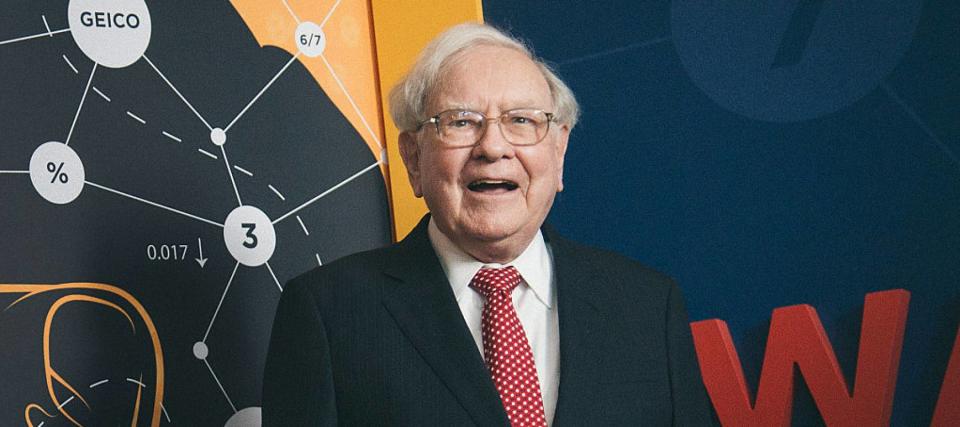
Warren Buffett is renowned for his shrewd investments, particularly his knack for buying companies with durable competitive advantages. However, his investment wisdom extends beyond companies and stocks.
In fact, there are two non-stock investments that Buffett has made and considers particularly ‘instructive.’
Don’t miss
-
Commercial real estate has beaten the stock market for 25 years — but only the super rich could buy in. Here’s how even ordinary investors can become the landlord of Walmart, Whole Foods or Kroger
-
Car insurance premiums in America are through the roof — and only getting worse. But 5 minutes could have you paying as little as $29/month
-
These 5 magic money moves will boost you up America’s net worth ladder in 2024 — and you can complete each step within minutes. Here’s how
While not as famous as his company Berkshire Hathaway’s stock holdings, Buffett has expressed unwavering confidence in these investments.
“The two investments will be solid and satisfactory holdings for my lifetime and, subsequently, for my children and grandchildren,” he wrote in a letter to Berkshire shareholders.
He also projected that the income from the two investments “will probably increase in the decades to come.”
Here’s a closer look at these investments.
The first investment
The first investment began amidst the backdrop of a farm price bubble burst in the Midwest. When farm prices declined, Buffett saw an opportunity.
“In 1986, I purchased a 400-acre farm, located 50 miles north of Omaha, from the FDIC. It cost me $280,000, considerably less than what a failed bank had lent against the farm a few years earlier,” Buffett recounted in his letter.
The Oracle of Omaha admitted that he “knew nothing” about operating a farm. Fortunately, his son had a passion for farming, and Buffett was able to learn about the farm’s production of corn and soybeans and its operating expenses.
Buffett then calculated that the normalized return from the farm would be 10%. He also believed that productivity would likely improve over time and that crop prices would increase. He highlighted that “both expectations proved out.”
It didn’t seem to be a hard decision to make, as he remarked, “I needed no unusual knowledge or intelligence to conclude that the investment had no downside and potentially had substantial upside.”
The investment proved worthwhile. In 2014, Buffett noted that the farm had tripled its earnings and was worth five times more than what he paid.
Read more: Car insurance rates have spiked in the US to a stunning $2,150/year — but you can be smarter than that. Here’s how you can save yourself as much as $820 annually in minutes (it’s 100% free)
The second investment
The second investment also arose from the burst of a bubble — this time in commercial real estate.
In 1993, Buffett learned that a New York retail property adjacent to New York University was up for sale by the Resolution Trust Corporation (RTC). This entity was created to dispose of the assets of failed savings institutions whose overly optimistic lending practices had led to significant losses.
Buffett conducted his analysis and determined that the unleveraged current yield from the property was approximately 10%. He noted that the RTC had undermanaged the property, and leasing the vacant stores would enhance its income.
More importantly, Buffett identified a major opportunity: the largest tenant, occupying about 20% of the space, was paying rent of only $5 per square foot, while other tenants averaged $70. He wrote, “The expiration of this bargain lease in nine years was certain to provide a major boost to earnings.”
He was also optimistic about the property’s prime location, remarking that “NYU wasn’t going anywhere.”
Armed with this analysis, Buffett joined a small group of investors to purchase the property. The decision proved to be successful.
“Annual distributions now exceed 35% of our original equity investment. Moreover, our original mortgage was refinanced in 1996 and again in 1999, moves that allowed several special distributions totaling more than 150% of what we had invested,” Buffett wrote.
Lessons from the Oracle
Note that while Buffett is optimistic about the future of these two investments, he made them after the bubbles had burst and conducted thorough analyses to forecast his returns.
In fact, Buffett wanted to highlight an important lesson from his experience: “Focus on the future productivity of the asset you are considering.”
He emphasized that if you don’t feel comfortable making a rough estimate of an asset’s future earnings, you should “just forget it and move on.”
While some businesses are harder to forecast, farmland and real estate properties are more straightforward.
For farmland, you can estimate future returns by projecting the expected yield of corn and soybeans and their anticipated prices.
For retail properties, Buffett assessed potential income by examining rent per square foot and lease terms.
Today, you don’t need to buy a whole farm or an entire building to invest in these asset classes. There are real estate investment trusts (REITs) that specialize in retail properties as well as those that focus on owning farmland.
Additionally, crowdfunding platforms allow everyday investors to become part owners of institutional-quality real estate portfolios, enabling them to earn rental income without the responsibilities of being a landlord.
What to read next
This article provides information only and should not be construed as advice. It is provided without warranty of any kind.
